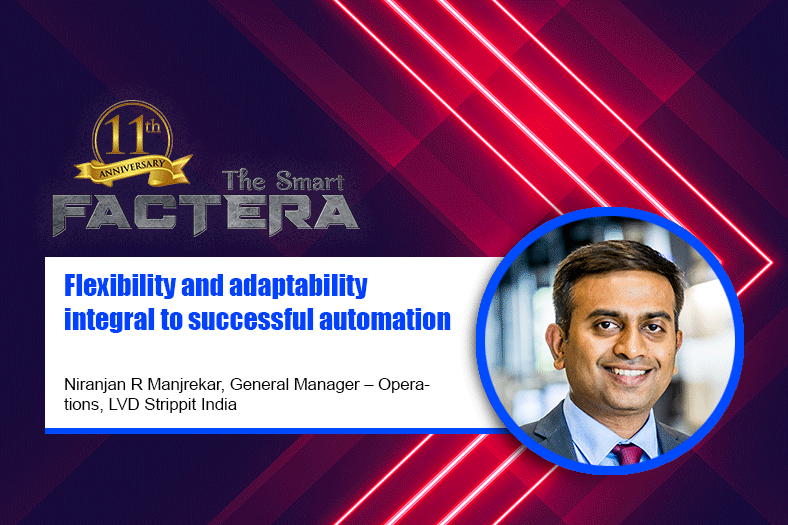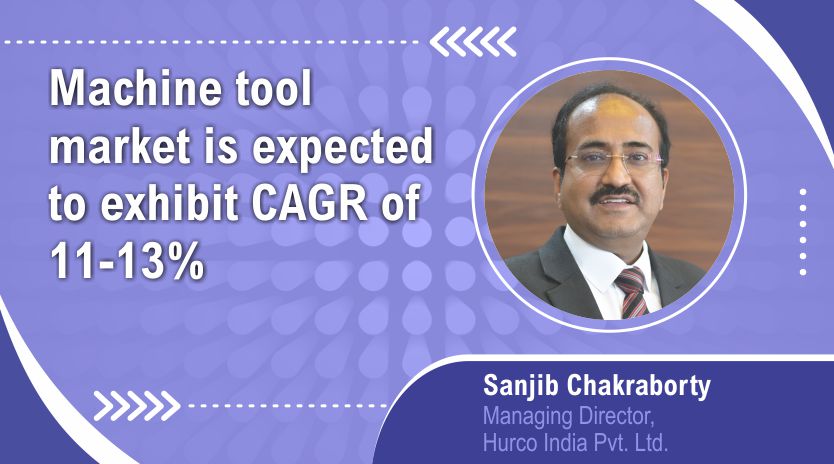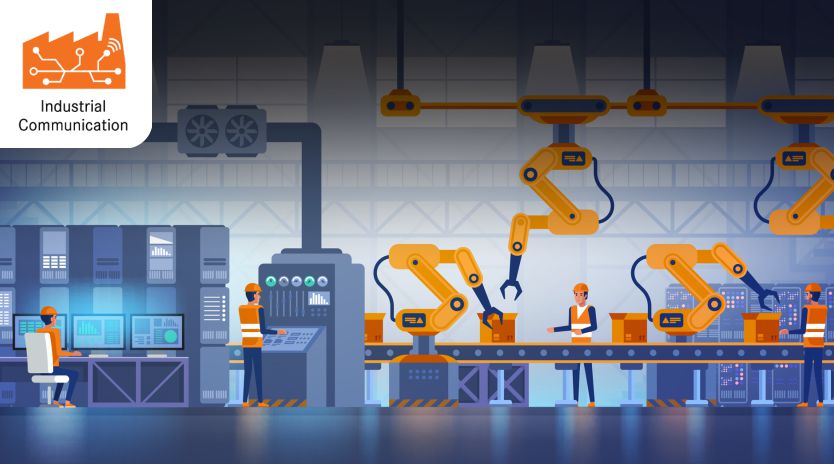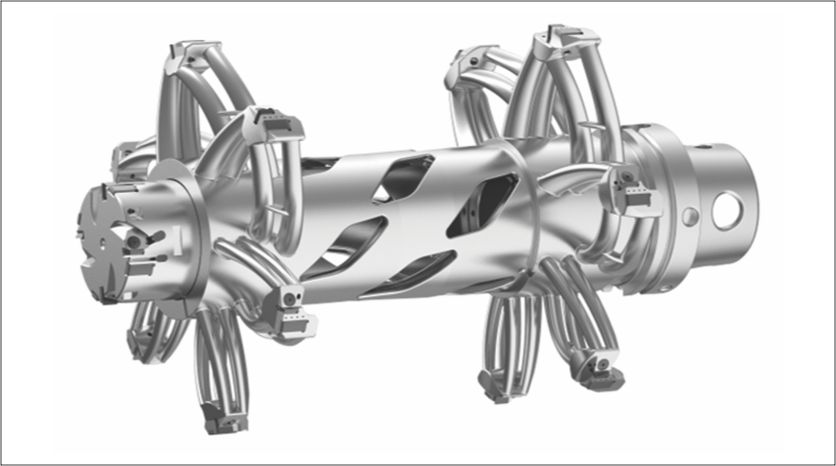Flexibility and adaptability integral to successful automation
June 10, 2020 4:18 pm
The right consultation and strong aspiration from MSMEs, particularly to move forward with the smart factory concept, will change the whole manufacturing scenario in India.
Niranjan R Manjrekar, General Manager – Operations, LVD Strippit India, talks about how automation and other latest technologies are contributing in taking India and Indian manufacturers towards the era of smart factories and become an inevitable part of something big.
How has your company’s journey been in the adoption of smart factories?
Before Industry 4.0 had a name, LVD saw and realised the value of integrated software that connects machine and processes. Our products embrace the principle of Industry 4.0 and make the smart factory possible. We help our customer to transform their factory shop into the Factory of the Future.
What kind of steps do companies, including MSMEs, need to take for the adoption of smart factories?
In order to convert a “factory” into a “smart factory”, it’s important that companies have seamless communication to management, planning, production, quotation, costing, and dispatch schedule. The whole integration should be with digital transfer of data. With the present challenges of thin margin profits, companies don’t have the luxury for any kind of mistakes. Flexible manufacturing and lesser lead time are the key for better or best performance.
Companies should focus on effective pre-production process by means of intelligent software, taking care of the programming and the cost estimation effectively without error, and then get into production with high-performance machines mapping out the process at each step until the dispatch status. Investing in the right technology along with appropriate solution is very important and hence companies should partner with a machine tool builder/manufacturer who is capable of providing the complete solution.
Particularly, MSMEs should be away from buying on just cost as a parameter which will not cater to their plan of building a smart factory, and further will make them less flexible and less competent in the market.
How have machine learning (ML), artificial intelligence (AI), robotics, automation and big data been implemented by OEMs to move towards a Connected Enterprise?
Automation is becoming an integral part of the smart factory. Manual interventions may cause uncertainty into the manufacturing processes and affect the efficiency of the factory. Any uncertain factor can bring down your estimation and commitment. Even the recent pandemic crisis also taught us to adapt and get along with automation so as to experience uninterrupted quality production.
We are evolving at every stage to make automation more flexible and more intelligent; flexibility and adaptability is the key of successful automation solution.
What are the challenges faced by OEMs while transitioning towards smart factories?
A major challenge for transition towards the smart factory in the Indian market is only the “decision making” by the companies by means of investing in the right technology and solution provider. I strongly feel that the right consultation and strong aspiration from MSMEs, particularly to move forward with the smart factory concept, will change the whole manufacturing scenario in India and will help us to establish the perspective of being capable of “sustaining an advanced manufacturing environment”.
What kind of technological advancement can we expect with respect to smart manufacturing in the coming years?
We are more excited to see much technological advancement in the coming years in every product vertical. The changes will be in every aspect, right from being energy-efficient, high-performance and obviously in line with the smart factory platform, but to be more precise, automation will the key ingredient in every segment.
Cookie Consent
We use cookies to personalize your experience. By continuing to visit this website you agree to our Terms & Conditions, Privacy Policy and Cookie Policy.

















 English
English Hindi
Hindi